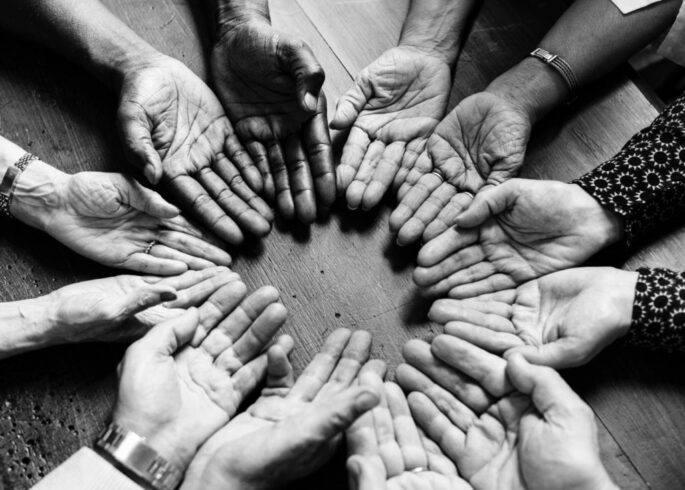A recent investigation revealed the Department of Health and Human Services fined six Georgia facilities for failure to report cases of sexual abuse in nursing homes and protect its residents against sexual crimes.
Underreporting of Sexual Abuse in Georgia Nursing Homes
In at least half of the nursing homes investigated, the unreported sexual abuse occurred between residents. Among the incidents include one resident exposing himself and engaging in unwanted sexual activity, another reaching into others’ pants and a third resident putting his hand up another resident’s dress and groping her.
Unfortunately, sexual abuse is an ongoing problem in nursing homes and these cases are an indicator of a more significant issue that’s occurring across the nation. Georgia State’s Long-Term Care Ombudsman, Melanie McNeil, said the problems revealed in the investigation are likely just the tip of the iceberg.
Sexual Abuse Protocols Not Being Followed
One of the alarming aspects of the investigation was the failure to report the instances of sexual abuse to the correct authorities. Instead, the nursing homes seemed to accept the behavior and made little to no efforts to reprimand the residents committing assault or protect their victims from future harm.
Every nursing home staff member is responsible for the safety of residents, which includes reporting inappropriate or dangerous behavior. If sexual abuse occurs, nursing home staff must ensure the resident’s safety and then report the abuse to both the nursing home administrator and local police.
“Anybody in the facility who works there is a mandated reporter,” explains Melanie McNeil.
Once the administration and police are notified, the victim should be brought to the local hospital for a rape kit, if they consent. The administration should then call several agencies: the licensing and certification agency, Adult Protective Services (APS), and the Long-Term Care Ombudsman Program.
The resident should also be connected to medical and psychological support services and have frequent check-ins. Unfortunately, too many nursing homes fail to follow these steps. Underreporting is common across the entire nation for a variety of reasons.
Some of the reasons elder sexual abuse goes unreported are:
- Non-verbal victims are unable to report their abuse
- Victims with memory challenges may not remember their abuse
- Victims feel embarrassed, ashamed or guilty
- Victims are scared of retaliation from their abuser
- Facility workers or administration fear consequences
- Facility workers don’t believe the victim (often due to mental health issues)
- Facility workers fail to escalate concerns properly
- Facility workers fail to follow typical sexual abuse protocol
- Facility administration think they have resolved the issue
It’s hard to imagine that someone would sexually abuse an elderly resident, and even harder to accept that it would go unreported. Yet, sexual abuse is a rampant issue in nursing homes across the nation, and most cases are never reported.
Preventing Sexual Abuse in Nursing Homes
Sexual abuse occurs in nursing homes because residents are vulnerable and homes fail to protect them. In too many cases, nursing homes put profits and self-interest above the care of their residents instead of taking the steps necessary to ensure a safe and secure environment.
Nursing homes can protect residents from elder abuse by:
- Hiring adequate levels of staff to monitor
- Ensuring residents are never alone
- Training and educating staff on sexual abuse
- Encouraging social interaction & support for residents
- Never housing formerly violent or abusive residents with others
- Taking resident complaints seriously, regardless of mental condition
Residents have a right to be safe, and nursing homes have a responsibility to ensure that right. Creating an environment that allows sexual abuse to occur is never acceptable or justifiable.
Symptoms of Sexual Abuse
In some cases, sexual abuse at nursing homes goes undetected for months or even years. Staff isn’t necessarily trained to recognize the signs of sexual abuse, especially when they aren’t physical.
Common symptoms of sexual abuse in seniors include:
- Bruises on genitals, breasts or thighs
- Sexually transmitted infections
- New mobility challenges
- Torn or soiled clothing
- Agitation
- Withdrawal
- PTSD or panic attacks
- Suicide attempts
- Sudden behavioral changes
Seniors who experience any of the above symptoms may be a victim of sexual abuse, regardless of how unlikely it may seem. In some cases, residents will have strong emotional reactions to their abuser, which can take the form of seemingly unrelated arguments, anxiety or aggression.
Protecting Vulnerable Elders from Nursing Home Sexual Abuse
The most common victims of sexual abuse are women with dementia, due to their impaired memory and difficulty reporting abuse, but any resident can become a victim. It’s unfortunately easy for abusers to take advantage of nursing home residents and then discretely clean the physical evidence, knowing the residents are unable to report the abuse.
Abusers can be any individual who is in contact with a resident, including family members, friends, long- and short-term staff and visitors. However, the most common abusers are other residents, particularly those with dementia or other mental health issues.
Studies have shown that dementia-driven resident-to-resident abuse is the most prolific form of sexual abuse in nursing homes.
Nursing home administration knows this but fails to address it. Instead, nursing home residents continue to pay the price for care facilities’ negligence and failure to prevent, recognize and report sexual abuse. If you or someone you love is the victim of nursing home sexual abuse, you deserve justice. Contact Nursing Home Abuse Justice for a complimentary case review.

